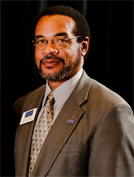
Most of the compounds that pharmaceutical companies make have specific properties in order for them to have biological activity. Even though some of these compounds may look very similar to other compounds and may even have the same molecular formulas, they cannot be superimposed on each other and hence are really different compounds. The human body can recognize such compounds as different and one compound will be biologically active and the other one poisonous. In order to make the desired compound in large excess, specific catalysts are often used. These catalysts have to be carefully designed in order for them to give the desired product in larger quantities, compared to other similar compounds that may be produced in the reaction. An important tool that is often used to gain a rationale design of such molecules is to use computer modeling. There are presently some very effective catalysts that are used to accomplish these asymmetric syntheses, but a major problem associated with their use for these asymmetric transformations is that they are not easily recovered and recycled. As a result, large amounts of catalysts are typically used, especially in industry, which poses a serious disposal problem. In this research, new categories of recyclable homogeneous organocatalysts are developed and are very effective in giving desired asymmetric compounds. These organocatalysts are unique in that they contain ionic liquid moieties, which convey a wide range of properties to the catalysts. As a result, these ionic liquid-supported (ILS) organocatalysts are tunable and their properties can be adjusted to meet a wide variety of reaction conditions. The proposed project has three aspects: 1) REU students will gain the experience of synthesizing organocatalysts and utilize state-of-the-art instrumentation for their characterization; 2) students will utilize newly synthesized organocatalysts to catalyze specific asymmetric reactions of organic chemistry; and 3) students will utilize the Spartan software to carry out computational modeling studies to assist in the design of effective organocatalysts for these reactions.
Education Major Degree & Year
University of California, Irvine, CA Chemistry Postdoc, 1982-1983
Howard University, Washington, D.C. Chemistry Ph.D., 1982
Columbia Union College, Maryland Chemistry B. A., 1974
Academic and Professional Appointments
Professor of Chemistry, Texas A&M University-Commerce 2004 - present
Interim Department Head, Chemistry, Texas A&M University-Commerce 2014 - 2015
Dean, Graduate Studies & Research, Texas A&M-Commerce 2004 - 2012 Professor of Chemistry, Texas Tech University 2002 - 2004 Associate Graduate Dean, Texas Tech University 1999 - 2004
Program Director, The National Science Foundation, Arlington, VA 2002 - 2003
Associate Professor of Chemistry, Texas Tech University 1995 - 2002
Assistant Professor of Chemistry, Texas Tech University 1989 - 1995
Lecturer of Chemistry, University of California, Irvine, CA 1987 - 1989
Lecturer of Chemistry, University of the West Indies, Jamaica 1983 - 1987
Professional Involvement:

